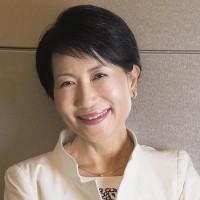24 October 2015
Interview: Pessimism is not an option: The road to sustainable development
Q: What is sustainable development and why is it important?
A: As Brundtland put it, sustainable development meets the needs of the present without compromising the ability of future generations to meet their own needs. If we do not achieve sustainable development, we will fail to provide even the barest essentials of life—food, water, and shelter—for the growing population. The extra two billion people that will inhabit the world in 2050 can only be accommodated if we are serious about sustainable development. On a personal level I care about sustainable development because I care about the future, I care about young people, and I care about humanity. Achieving sustainable development is, in my opinion, the single most important issue we face today. Without it, all life on Earth is in jeopardy.
Q: How do you see the world in 2050? What are your most optimistic and pessimistic visions?
A: I am an optimistic person so I will say that, by 2050, every government, every business, and every individual will take the environment into consideration in all their actions. By 2050, we will all be caring for the Earth, taking responsibility for the use of our planet’s resources, and building economies which will leave no one without dignity or necessary subsistence. We will live within safe planetary boundaries. Pessimism is not an option for me.
Q: How can science help the world achieve sustainable development?
A: Science plays a critical role. We need it to monitor our resources and the impacts of our activities as well as identify solutions. Many environmental challenges and threats to sustainable development do not respect borders. Moreover, they are often interdependent, or share common drivers. This means that sustainable development must be a cross‑cutting endeavor. Science can play an important role by producing research that is integrated, cross‑sectoral, and international. In this way, synergies, co‑benefits, and trade‑offs can be explored in order to identify the smartest paths to achieving multiple sustainable development goals at the same time. I am very excited, for example, about a research program we have recently launched in partnership with IIASA and the United Nations Industrial Development Organization, focusing on development and implementation of integrated solutions to tackle the water–food–energy nexus.
Q: How do you see the role of Global Environment Facility in implementing the Sustainable Development Goals?
A: The Global Environment Facility is uniquely placed to support the global commons—the planet’s finite environmental resources that provide the stable conditions required for a sustainable, prosperous future for all. Our new strategy—GEF2020—lays out an ambitious vision, aimed at addressing the underlying drivers of environmental degradation and delivering integrated, holistic, solutions. We are building on more than 20 years of experience providing support to over 165 countries.

OPTIONS WINTER 2015
ON THE BLOG:
Pessimism is not an option: The road to sustainable development (full version interview)
MULTIMEDIA
13 April 2015
Alpbach-Laxenburg Group
Related project


